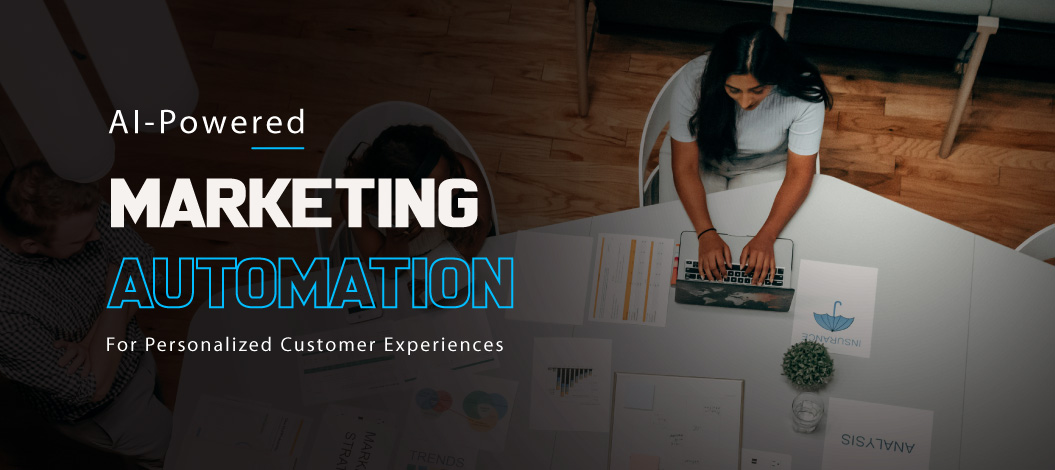AI powered marketing automation is revolutionizing consumer engagement for businesses in today’s digital environment. Businesses may provide individualized consumer experiences that increase engagement, pleasure, and loyalty by utilizing AI and machine learning. We explore how AI-powered marketing automation might improve tailored interactions below, providing in-depth analyses of its various dimensions.
Understanding AI Powered Marketing Automation
Marketing automation driven by AI combines cutting-edge technologies to improve and expedite marketing activities. This covers every aspect, from behavioral analysis and customer segmentation to content personalization and predictive analytics. The objective is to improve overall marketing effectiveness by providing customized experiences that cater to the interests and preferences of each individual customer.
Customer Segmentation: Precision at Scale
The first step in effective marketing is knowing your target. AI is excellent at customer segmentation because it can analyze large datasets to find trends and divide consumers into different groups. A number of factors, such as engagement levels, purchasing history, behavior, and demographics, can be used to base this segmentation. Businesses may create highly targeted marketing efforts that resonate with particular audiences and increase conversion rates by precisely segmenting their client base.
Behavioral Analysis: Real-Time Insights
Artificial intelligence algorithms track and evaluate consumer behavior in real time. This entails monitoring activities including visits to websites, correspondence via email, and interactions on social media. AI can forecast future activities and adjust marketing messaging by analyzing these behaviors. AI can increase the relevance of marketing campaigns by, for instance, suggesting related products or providing tailored promos to a consumer who regularly shops in a certain product category.
Personalized Content: Custom-Tailored Messaging
An essential component of marketing automation driven by AI is content personalization. AI systems are capable of producing tailored information, including targeted adverts, product recommendations, and altered email subject lines. Businesses can achieve dramatically higher engagement rates by providing information that is tailored to each individual’s tastes and interests. Personalized content not only draws in viewers but also establishes a stronger bond with them that promotes trust and loyalty.
Dynamic Pricing: Optimizing Revenue
AI makes it possible to implement dynamic pricing techniques, which modify prices in response to a range of variables such as demand, rivalry, and personal consumer information. Businesses can optimize sales prospects and uphold client satisfaction by providing customized discounts and promotions. Customers will receive offers that are most relevant to them thanks to dynamic pricing, which improves the shopping experience and raises the possibility that they will make a purchase.
Predictive Analytics: Anticipating Customer Needs
AI powered predictive analytics enables companies to anticipate and meet the wants and preferences of their customers. Artificial Intelligence (AI) can predict future actions and provide proactive marketing strategies by studying historical data and current patterns. AI, for example, has the ability to recognize which customers are most likely to quit and launch retention programs in advance of their departure. With this proactive strategy, marketing initiatives are constantly one step ahead of consumer needs, offering solutions before consumers even recognize they exist.
Chatbots and Virtual Assistants: Enhancing Customer Support
Artificial intelligence (AI) powered chatbots and virtual assistants are essential for providing individualized client experiences. These resources offer clients real-time assistance, respond to their questions, suggest products, and assist them with their purchases. Chatbots increase overall efficiency by freeing up human agents to handle more complicated issues by automating customer support activities. Furthermore, the information gathered from these exchanges can be used to increase personalization efforts even more, starting a positive feedback loop that keeps getting better.
Automated Campaigns: Efficiency and Effectiveness
All aspects of marketing campaigns, from early planning to implementation and analysis, can be automated with AI. This involves creating targeted advertisements, sending individualized emails, and planning social media posts. Businesses may guarantee timely and consistent communication with their audience by automating these operations. Furthermore, AI continuously improves future attempts for better outcomes by learning from campaign performance data. This improves the overall efficacy of marketing initiatives while also saving time.
Customer Journey Mapping: A Holistic View
AI generates comprehensive customer journey maps by analyzing client interactions across various touchpoints. These maps offer a thorough understanding of the interactions that consumers have with a brand, from first awareness until after a purchase. Businesses can provide a smooth and customized experience at every stage by identifying chances for improvement and pain points by analyzing these trips. Developing unified marketing strategies that are in line with consumer expectations and behaviors is made easier with the use of customer journey mapping.
Enhanced Customer Loyalty Programs: Personal Rewards
By tailoring offers and prizes according to the unique information of each consumer, AI may greatly improve loyalty programs. AI is able to customize loyalty rewards that are most likely to increase engagement and encourage repeat business by learning what drives each individual consumer. Personalized loyalty programs not only boost customer happiness but also encourage steadfast loyalty by making customers feel appreciated and acknowledged for their distinct tastes and habits.
Real-Time Feedback and Adaptation: Staying Relevant
It needs constant modification to be relevant in the fast-paced digital age. Real-time data collection and analysis by AI systems enables companies to swiftly modify their approach in response to changing client demands. Real-time feedback makes it possible for companies to react quickly to changes, preserving the efficacy and relevance of their marketing initiatives, whether those changes involve improving a product offering or a marketing campaign.
Conclusion
Personalized consumer experiences are revolutionized by AI powered marketing automation. Businesses may develop highly focused, relevant, and engaging encounters that increase consumer satisfaction and loyalty by utilizing artificial intelligence’s capabilities. Personalized content, behavioral analysis, customer segmentation, and predictive analytics are just a few of the many tools that artificial intelligence (AI) may provide to improve the customer journey. The potential for developing genuinely individualized experiences will only increase as companies continue to embrace and use AI technologies, raising the bar for customer engagement and marketing efficacy.

